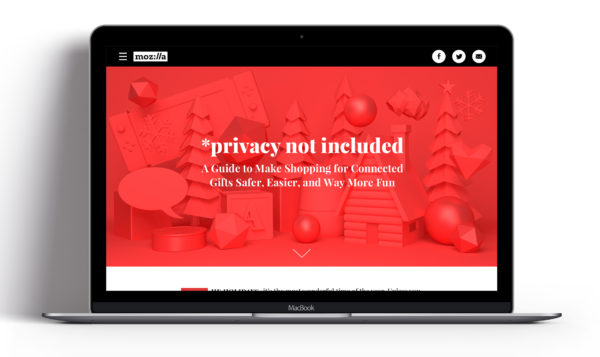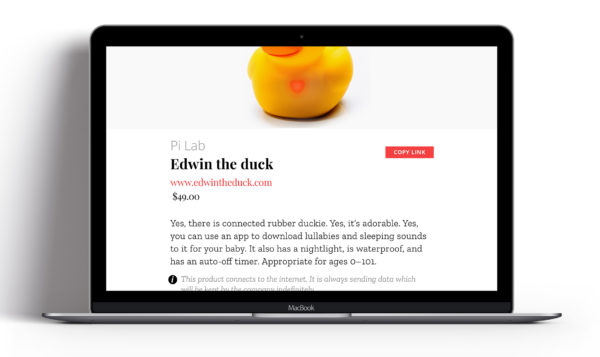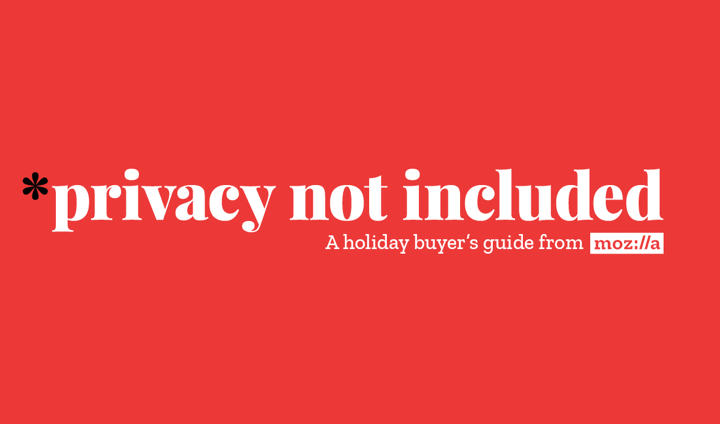This gift-giving season, Mozilla is helping you choose gadgets that respect your online privacy and security: advocacy.mozilla.org/privacynotincluded
Is your smart toaster spying on you? Does your toddler’s new toy have an easily-hackable microphone or camera?
This holiday season, don’t buy your loved ones an Internet-connected gadget that compromises their privacy or security — no matter how nifty or cute that gadget may be.
Today, Mozilla is publishing *Privacy Not Included — a shopping companion to help consumers identify Internet-connected products that meet their privacy and security needs.

Mozilla’s researchers reviewed dozens of popular toys, game consoles, exercise gadgets, and smart home accessories ranging in price from $25 to $900. We asked critical questions, like:
Does this product have privacy controls? Does the company share data with third parties? And does the company claim to obey child-related privacy rules? Our goal: To make products’ privacy and security features as obvious as their price.
Our reviews are guided by the Digital Standard, a comprehensive rubric for evaluating items’ privacy and security features. The Standard is developed by Consumer Reports and its partners Disconnect, Ranking Digital Rights, and the Cyber Independent Testing Lab.
We also integrated Talk — an open-source commenting platform built by Mozilla — across our buyers’ guide, so consumers can talk to one another. *Privacy Not Included is available in both English and Spanish.
We’re releasing *Privacy Not Included at a critical moment. Every day, more and more products — from cars to dolls to salt shakers — connect to the Internet and collect our personal data. But people feel they can’t control these connected devices, according to a recent Mozilla poll of 190,000 individuals across scores of countries. 35% of respondents were “wary and nervous” about the future of IoT, and 45% feared a “loss of privacy.”
Unfortunately, the expectation in digital life today is that it’s the consumer’s responsibility to protect their online privacy and security. It’s the consumer’s job to wield VPNs and encryption, and to master a host of other technical tools.
It’s important to empower consumers — but it’s not enough. Makers of digital products must prioritize online privacy and security. We don’t ask people to install their own seat belts to stay safe in cars. Why are we asking people to install VPNs to stay safe online?
“Right now, the Internet of Things is at an inflection point,” Mark Surman, Mozilla’s Executive Director, recently wrote. “It’s pervasive, but also still in its infancy. Rules have yet to be written, and social mores yet to be established. There are many possible futures — some darker than others.”
With *Privacy Not Included, we can help shoppers choose more responsible technology. We can also do something bigger — fuel a movement for rules and mores that enshrine online privacy and security. We can demand change from the businesses that make digital products, and the governments that oversee them, to ensure privacy and security are built into our digital lives.

Ashley Boyd is VP, Advocacy at Mozilla.


